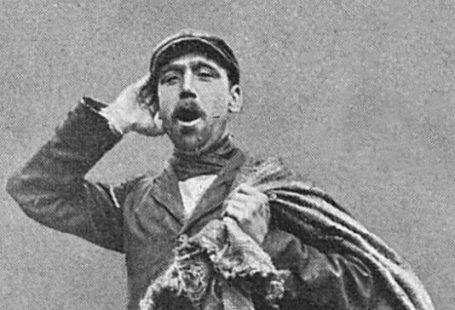 Caroline Rance, author of The Quack Doctor and What the Apothecary Ordered, got in touch to show us some of the shocking medical tales she’s unearthed.
Caroline Rance, author of The Quack Doctor and What the Apothecary Ordered, got in touch to show us some of the shocking medical tales she’s unearthed.
We’d love to hear about your own discoveries – email press@britishnewspaperarchive.co.uk to tell us about them.
**************
Whatever you search for in The British Newspaper Archive, chances are the articles you find will be close to adverts promoting cures for every kind of disease. Some brands were sold in good faith and became stalwarts of the family medicine cabinet.
But the pages of nineteenth-century newspapers also hold the more sinister side of the medicine trade – the fraudsters who purposely sold worthless treatments for a quick profit. The following charlatans used some inventive means to get one over on the public, but savvy patients saw through their tricks.
1. Cornelius Bennett Harness
Cornelius B Harness advertised his Electric Corset as ‘the very thing for ladies’. Fortunately, it didn’t really carry an electric current; it was supposed to be magnetic (though that’s doubtful too).
In 1893, Harness was the subject of a devastating exposé in the Pall Mall Gazette, entitled ‘The Harness Electropathic Swindle’. Disgruntled patients sent in their experiences, others voted with their feet, and his fortune dwindled to nothing.
Leeds Mercury – Saturday 10 December 1892
Image © THE BRITISH LIBRARY BOARD. ALL RIGHTS RESERVED.
2. Dr Alfred Field Henery
Henery (real name John Osterfield Wray) cashed in on the medical phenomenon of spermatorrhoea – a largely imaginary condition of the male reproductive organs said to end in impotence, insanity and death. He promised a discreet cure by galvanic electricity and Life-Preserving Drops.
In 1864, a soldier called Montague Clarke realised the treatment was useless and refused to pay. Henery tried to blackmail him by threatening to tell his family that masturbation had caused his ‘filthy’ disease. Clarke, however, promptly had him arrested and Henery got two years’ imprisonment for conspiracy to defraud.
The Era – Sunday 23 October 1864
Image © THE BRITISH LIBRARY BOARD. ALL RIGHTS RESERVED.
3. The Bennett brothers
The three Bennett brothers, under the name of Dr Watters, ran the official-sounding ‘British and Foreign Ear Dispensary’, claiming to cure deafness. They also operated under other names and addresses, in the hope that patients who weren’t cured by one alias might try another.
This system could break down if they forgot which customer had already seen which brother. One patient, Mary Scattergood, recognised the ‘doctor’ who had conned her in the past, and managed to get the whole business shut down.
Cheltenham Looker-On – Saturday 08 May 1858
Image © THE BRITISH LIBRARY BOARD. ALL RIGHTS RESERVED.
4. Maria Owen
Newspapers dubbed Maria Owen ‘The Bogus Lady Doctor’. She would knock on people’s doors pretending to be from the local hospital, charge them for medicine (vinegar and water) and then disappear.
Owen diagnosed a woman called Mrs Cooper with heart disease in 1890. As the family had no money for medicine, Owen suggested borrowing some from a friend. Mrs Cooper’s husband agreed, but came back with a policeman. Other offenses emerged and Owen got 12 months hard labour.
Birmingham Daily Post – Wednesday 19 February 1890
Image © THE BRITISH LIBRARY BOARD. ALL RIGHTS RESERVED.
5. Cameron the Piss-prophet
Urine-casting, once an important part of medieval medicine, later became the province of dubious ‘piss-prophets’. In the early nineteenth century, Dr Cameron claimed he could name any disease from the colour, smell and taste of anonymous urine samples. Whatever the diagnosis, his treatment involved strong laxatives containing mercury, making the patient feel worse than ever.
One unsatisfied customer, left in agony by the pills, sent a messenger with a bottle of urine. After tasting it, Cameron diagnosed a bad back, and was not amused when the messenger revealed that the urine had come from a donkey!
Morning Chronicle – Wednesday 03 September 1817
Image © THE BRITISH LIBRARY BOARD. ALL RIGHTS RESERVED.
**************
Visit Caroline’s website to buy copies of her books and learn more about her research.









